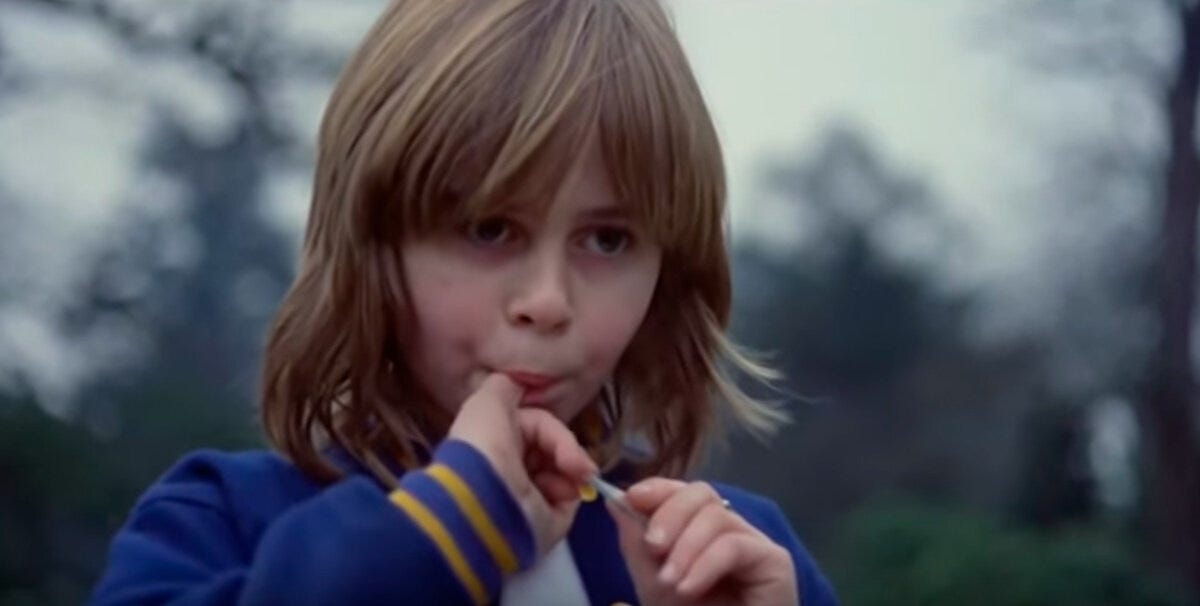In Elizabeth Bishop’s “One Art,” the narrator identifies the art form named in the title as the art of losing:
The art of losing isn’t hard to master;
so many things seem filled with the intent
to be lost that their loss is no disaster.
Lose something every day. Accept the fluster
of lost door keys, the hour badly spent.
The art of losing isn’t hard to master.
What kind of art is losing in this case? Losing is not an activity we usually associate with making art, no matter what form that art making takes. And we often understand losing as antonym to mastery, which is instead equated in our individualist culture with the disciplined pursuit of winning and keeping what we win. Losing isn’t something we do at all but something that happens to us in fact: an example of the world’s raw facticity.
Bishop proffers her reader these ironic or even paradoxical juxtapositions even as she plays on the different senses of “to lose”: to inadvertently misplace or forego something such as the “lost door keys” of the second stanza; to fail in some pursuit; and that ambiguous third sense which combines personal failure and loss when we cannot keep an other.
But our speaker apparently rejects inadvertent loss, instead inscribing an occult agency or “the intent to be lost” into the things that go missing. Hence it is“no disaster” when we lose heirlooms, names, places, loved houses as she details in the next few stanzas of her villanelle:
Then practice losing farther, losing faster:
places, and names, and where it was you meant
to travel. None of these will bring disaster.
I lost my mother’s watch. And look! my last, or
next-to-last, of three loved houses went.
The art of losing isn’t hard to master.
How does one practice or achieve mastery in the art of losing if the things themselves want to be lost? Is the poem a verbal snapshot of the rationalizing subject learning to accept the L? Is it an account of compensatory denial ?
These psychological gymnastics—or “self-care” in today’s horrible parlance—come to the fore in the poem’s concluding quatrain:
—Even losing you (the joking voice, a gesture
I love) I shan’t have lied. It’s evident
the art of losing’s not too hard to master
though it may look like (Write it!) like disaster.
Here we see that ambiguous third sense of losing, at least in the case of heart break, under which a sense of personal failure—what did I do to drive her away or ruin the romance, how was I deficient?—intermingles with the weight of senseless or inscrutable inevitability such as what we encounter in that other and more definitive way we lose someone: death. (Bishop wrote the poem, published in 1978, as elegiac response to a separation from her lover Alice Methfessel.) The art of loving is hard to master exactly because it entails the embrace of loss and not just any loss, since losing a beloved is akin to losing a part of ourselves—a spiritual amputation.
But such loss has its compensations, or rather sublimations, through art and literary expression in particular—Write it!—as we learn in the last line’s rhetorical hiccup: a repetition that suggests the speaker is lying to herself in part.
A final irony here is that the kind of writing which emerges from such loss—a loss to which we are never wholly reconciled—is usually very different from the knowingly nonchalant multi-step guidelines for learning how to lose on display in the poem. The pain in this case resides in what the speaker explicitly minimizes or denies throughout her song. Which is why, as champion loser, I often go back and forth in my estimation of this work and its ironies: no catharsis.
In Beyond The Pleasure Principle—written in response to the First World War and the then novel phenomenon of shell shock exhibited by returning soldiers—an older Freud theorizes that the human psyche is a battlefield upon which the life instinct or pleasure principle (Eros) and death drive (Thanatos) fight (and fuck, i.e. uneasily combine). While our erotic urges seek unity and perpetuation through a tension-fueled drive toward libidinal fusion with an other, the death drive seeks return to an earlier, tensionless, pre-organic state.
According to Freud, this drive toward dissolution finds its most characteristically symptomatic form in the compulsion to repeat:
The manifestations of a compulsion to repeat (which we have described as occurring in the early activities of infantile mental life as well as among the events of psycho-analytic treatment) exhibit to a high degree an instinctual character and, when they act in opposition to the pleasure principle, give the appearance of some 'daemonic' force at work. In the case of children's play we seemed to see that children repeat unpleasurable experiences for the additional reason that they can master a powerful impression far more thoroughly by being active than they could by merely experiencing it passively.
Freud describes, in this regard, his one-and-a-half year old grandson Ernst’s game. Ernst, a good little boy, was very much attached to his mother—Freud’s daughter—yet he never cried when she went away. But this good little boy had a habit of disappearing his toys—under beds and into corners—all the while exclaiming O-O-O-O: an infantile attempt to articulate the German word “fort” or “gone.”
Freud later observes Ernst handling a wooden reel with a piece of string tied about it; the child would throw the reel over the edge of the bed—“Fort!”—and then pull it back into view with the joyous cry of “Da” or “here.” The child made a game of absence, and a psychodynamically significant one for Freud, since it was “related to the child's great cultural achievement: the instinctual renunciation (that is, the renunciation of instinctual satisfaction) which he had made in allowing his mother to go away without protesting. He compensated himself for this, as it were, by himself staging the disappearance and return of the objects within his reach.”
This is quixotic mastery as repetition play: the child re-stages both mother’s departure—now fantastically reconstituted as subject to his own will—and, more importantly, her reappearance. But, as Freud notes: “It may perhaps be said in reply that her departure had to be enacted as a necessary preliminary to her joyful return, and that it was in the latter that lay the true purpose of the game. But against this must be counted the observed fact that the first act, that of departure, was staged as a game in itself and far more frequently.”
In seeking to master loss through repetitive recreations, we instead work to further such loss. We serve Thanatos in striving to beat it better this time around. Think tragic irony as the determinative principle of psychic life.
In Freud’s story, this is the traumatic first act of individuation: an infantile and secular version of the Fall for us all, but even more so for good little boys with obsessive-compulsive tendencies. The loss of the mother here prefigures the losses to come, including death . These repetitive stabs at symbolic mastery—here/gone/here/gone then again—are recipe and ritual for disaster: how the death drive masters us as we pursue the chimera of mastering loss, death, and the rest.
I am an aficionado of repetition as I seek to master losing and loss in exactly this way: or precisely what Bishop half-parodies in her poem. In our ritualized attempts at mastery—again and again—we let loss in. This self-defeating drive toward mastering—doing the same things again and again always knowing the outcome then despairing in the face of that outcome—is the story of my life.
She died when things between us were ambiguous. She (and she and she) left—this manic pixie maelstrom, that broken ingenue duchess—in a sudden or shocking or inexplicable way. So I find a Judie Bartock for every Madeleine Elster, and go through the same movements I now know so well. To make it to the top of the winding mission staircase, to overcome my phantom malady, to finally save her from falling (or fleeing) into oblivion, only to expedite the outcome I want to avoid or undo with every step of a now predictable hide-and-go-seek routine. Of course I am the problem. Beneath any perverse hankering for excitement is a suicidal urge toward…some tensionless, pre-organic state?
My last stab at psychoanalysis coincided with a (symptomatic?) dalliance with the occult. The violent breakup of my one great romance (until it wasn’t) led to several months of girls, armed with Greek gifts of love and comfort, appearing out of the blue then disappearing all of a sudden. I immediately fixated on black magic and tulpas, while my analyst focused on my repetition complex and what I was doing to recreate this same situation in a futile quest for mastery.
He was mostly right of course although psychoanalysis isn’t so different from the magic it so anxiously rejects. If I am inviting exactly the wrong ones in, unbeknownst to my increasingly attenuated rational self, through the invisible and determinative agency of the unconscious, the unconscious must have effectively telepathic qualities, as I once quipped to my analyst. Which is no problem from my perspective. Meanwhile, the more sophisticated purveyors of magic these days are self-reflexive: it is ritualized object relations therapy.
Is all ritual a neurotic symptom? Or are neurotic symptoms ineffective rituals? Rather than the dead end of the repetition compulsion, practical magic—it seems—seeks to break the circular bind of again and again, offering a performative door through which we might walk forward. Or so one over-educated warlock let me know, his rhetoric overlapping with that of my analyst: what do you really want, Anthony?
Nicholas Roeg’s 1973 film Don’t Look Now—a cinematic meditation on loss, grief, and the uncanny in which Roeg explores the overlaps between the supernatural, the psychoanalytic, and the cinematic—is to the point here. John and Laura Baxter, a well-to-do art historian and his wife, played by Donald Sutherland and Julie Christie, respectively, lose their child Christine at the start of the film. As Christine drowns in a pond on the grounds of the couple’s English country house, Sutherland’s John—scrutinizing a slide photograph of the Venetian church that will (re)appear in the conclusion to the film—clairvoyantly envisions his daughter’s death before it occurs, although not in time to save the poor little girl, perhaps because John is unaware of his paranormal gift.
John, a good little boy all grown up—a secular academic with a passion for Venetian Renaissance churches and their restoration—could not save his poor little girl despite magical gifts and the best of intentions. So the old little boy spends the rest of the film attempting to save Christie’s Laura, his grief-stricken wife, from her madness, but who is the deluded one, or so Roeg asks us to consider?
Flash forward to an eerie, mid-winter Venice several months later where John is restoring one of those churches. A still distraught Laura meets two older eccentric English expatriate sisters, including a blind clairvoyant who claims to communicate with Christine: she’s happy, Laura! John of course dismisses it as a product of Laura’s hysterical grief.
All of this happens against a murder spree in this rotting Gothic confection of a lagoon city. Roeg meanwhile cinematically enacts all the ways in which movies—specter shows projected on a screen, and the film techniques (flashback and flash-forward and montage) that Walter Benjamin once argued made them a potentially revolutionary vehicle for ideological demystification—are a mechanically reproducible media recreation of the aura and enchantment supposedly undermined by modernity’s disenchantment of the world.
Roeg underlines the connections between the psychoanalytic map of the unconscious and ostensibly premodern ideas of second sight and the revenant. Baxter ultimately attempts to “fix” the fact he ignored his own premonitions of Christine’s death in restaging the scenario with the grotesque and diminutive killer whom he tellingly and terribly mistakes for the child he lost, all the while discounting his wife’s new psychic friends and his own, dimly apprehended, powers. His stab at mastery is something like a half-conscious embrace of disaster. And disaster, or Thanatos in the form of a stabbing, comes to him at the end of the film as he joins Christine.
The film concludes with Laura—in mourning clothes and appearing at peace—flanked by the older English women on a funeral barge. The three women in some ways represent a reconstituted version of the coven from Macbeth; Roeg is also invoking the embrace of matriarchy—as lost golden age and utopian goal—among certain second wave feminist thinkers, like Merlin Stone, at the time. Which isn’t so far-fetched when we recall the film is an adaptation of a Daphne du Maurier short story: a more explicitly feminist and queer interrogation of John’s patriarchal hubris.
Does Roeg offer us a parting vision of a goth all-female future after all the superfluous men have undone themselves? But there is at least one male in this company as we can see after the women disembark for the church service before credits roll. The Baxters also have a small son—Johnny—who witnessed sister’s death and father’s ineffectual attempts to save her at the beginning of the film. So in the end he accompanies his mother and her companions as they bury the father: another good little boy.
These last few weeks have brought a new crescendo of losses after twelve months or more of Da/Fort. But I suppose I shouldn’t make such public declarations keeping Edgar’s sentiment from King Lear in mind: “And worse I may be yet: the worst is not so long as we can say, 'This is the worst.'”
I prayed to God and Cosmos a few weeks ago: please let this long season of waiting, false starts, and sudden disappearances finally come to a close. What I got in return are new vanishings, disturbing returns, and then, during this past week, a robbery—an entire savings account drained!—albeit one I opened myself to: my signature move at this point. Rather than dark powers arrayed against me, which I immediately assumed in my sometimes grandiose and paranoid way, perhaps powers of earth and sky are conspiring to teach me a necessary lesson.
Sometimes we invite loss in our wholly self-defeating attempts to magically master it in its various modes— a pattern that finds a better, or at least more emotionally candid, form of literary expression (Write it!) in poor little girl Sylvia Plath’s very early “Mad Girl’s Love Song.” Gone/Here as long as you don’t open your eyes. And with those same eyes shut you might even imagine her, or what you once imagined her to be, still lying beside you inside your head:
I shut my eyes and all the world drops dead;
I lift my lids and all is born again.
(I think I made you up inside my head.)
The stars go waltzing out in blue and red,
And arbitrary blackness gallops in:
I shut my eyes and all the world drops dead.
I dreamed that you bewitched me into bedAnd sung me moon-struck, kissed me quite insane.
(I think I made you up inside my head.)
God topples from the sky, hell’s fires fade:
Exit seraphim and Satan’s men:
I shut my eyes and all the world drops dead.
I fancied you’d return the way you said,But I grow old and I forget your name.
(I think I made you up inside my head.)
I should have loved a thunderbird instead;At least when spring comes they roar back again.
I shut my eyes and all the world drops dead.
(I think I made you up inside my head.)









Thank you for this essay! Profound in many ways. And dovetails with the song that I’ve listened to far more than any other over the past 12 months. Again, thank you for writing.
https://m.youtube.com/watch?v=TWjYjX1bCJU&time_continue=1&embeds_referring_euri=https%3A%2F%2Fwww.google.com%2F
I think your essay On Loss and Losing is not about your constant losses, it is about of your loss of yourself, which is more serious then your trying to master the loss and losing.
The poetical impression of loss in the Elizabeth Bishop’s poem doesn’t express the mastering the loss, it accepts the loss. She, first, ironically goes from the petty losses (keys) to more serious (country-my loss),to the tragic one- the loss of a lover and it is “like a disaster.” She uses the poetical device- her refrain- to intensify the emotional strength of her poem.
You can’t master loosing and loss with the repetitions of losing and loss, if it is your life. Even if you apply Freud’s theory of Psychoanalysis.
My favorite Russian poets, all lost, besides Anna Akhmatova and Boris Pasternak, their lives very young because of wrong political regime of their country, and my vision of life a little bit different from mastering of loss and losing.